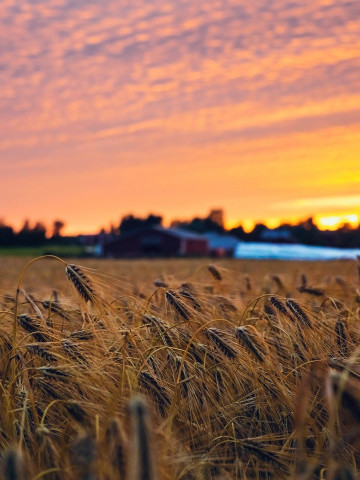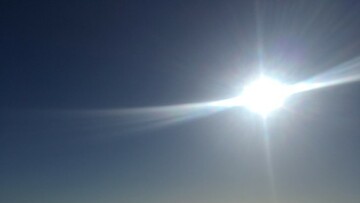
Bioekonomi
I bloggen Bioekonomi får du veta mer om Yrkeshögskolan Novias forsknings-, utvecklings- och innovationsverksamhet inom forskningsområdet systemomställning för att bygga resiliens. Majoriteten av personalen finns huvudsakligen i Raseborg. Här bildar forskare, projektarbetare, lärare, studerande och administrativ personal en dynamisk helhet. På vår blogg kan du läsa om vilka vi är, vad vi gör och om våra resultat. Välkommen!
Vid frågor eller feedback kontakta bloggens administratör Heidi Barman-Geust (Heidi.barman-geust(a)novia.fi)
Vi följer CC BY 4.0 om inget annat nämns.
Systemic Transformation to Build Resilience is one of Novia University of Applied Sciences six' research areas. The activity is mostly located in Raseborg, in southern Finland. As a dynamic unity, our researchers, project workers, teachers, students and administrative personnel produce versatile results in research, development and innovation. We blog about who we are, what we do, what our conclusions are, and how we implement them. Welcome!
If you have questions, please contact Heidi Barman (Heidi.barman-geust(a)novia.fi)
We folllow CC BY 4.0 if nothing else is stated.
Visitors from Scotland

In mid-March we had visitors from Scotland to our campus in Ekenäs. Three eager representatives from the University of Highlands and Islands (UHI) arrived in Ekenäs for a three-day visit. The main purpose of the visit was to get acquainted and sort out possibilities for further collaboration and to test a new funding instrument available in Scotland since Brexit.
The theme of the visit was renewable energy. The contact to Novia and the faculty of bioeconomy was initiated by Natalie Isaksson from UHI directed at our lecturer and researcher Patrik Byholm who has worked with habitat modelling and windfarms together with Fabio Balotari for several years at Novia. Quite soon the initial contact grew into a full three day shebang with meetings, study visits and a full day seminar, courtesy of our team leader in geospatial planning Aurelie Noel!
In this blog I will not focus more on the immediate goals of the visit, but you can read more about it in Aurelies blogs https://novialia.novia.fi/novialia/bloggar/bioekonomi/when-a-project-turns-into-a-circus. Instead, I will talk more about why we should make the effort of entertaining guests in the first place. In the current climate of effectiveness and digital meetings, it seems like we have all but forgotten how to entertain. The joy of learning to know new people, to hear stories that are new to us, to share our own stories and to experience something together is a true gift. Not only is it a gift for us on a personal level, but it is also very much a gift to the organizations taking part in the exchange.
During our three days together with our UHI guests, we got to share many things about the current climate in education and research, and we got to see how surprisingly similar UHI and Novia are. Both organizations have several campuses, and many colleagues only see each other IRL the few odd times a year if even that. Still, we work actively together and have taken our digital meetings to heart, seeing it as the lifeline for both teaching and collaborating with our colleagues. Ekenäs in Finland and Thurso in Scotland are small towns quite remote from the main campus of the respective University, so we also shared the experience of being that smaller campus where the number of staff and students is just a fraction of what it is at the bigger ones. Especially in the darker winter months, that feeling of remoteness is something of a struggle with the students in both countries. In Scotland however, the most remote campuses are on islands in the Hebrides, Orkneys, and on the Shetland islands. In these locations some campuses are just a room with digital equipment, but there is also at least one member of staff. This made our minds boggle and gave us the feeling we lived just a bit outside downtown Helsinki after all.
During our three days together, we also visited some local sites. Just driving through our countryside, still covered in snow and in blazing sun made us feel our neck of the woods is quite special. Enjoying some wildlife like swimming otters just outside the restaurant made up just fine for the otherwise rather empty venue on a regular Monday evening in March. The highlight for many I think, was the sauna in the wintery archipelago of Tvärminne. The pink pastels reflecting from the sky onto the ice, and the possibility to go and dip in the icy water was an experience for our guests that will stay with them. During the sauna we were also joined by our other team of guests at campus that week. The team from Tanzania and from the Netherlands who were doing a serious game on Marine Spatial Planning with students of ours together with students from Zanzibar. The sauna and the dipping in cold water took it’s toll and the dinner was one of rosy faces and quiet sighs while watching the sun set in the frozen sea.
These shared moments are as valuable as the business we did together during these intense few days. We got a feeling for each other, built trust, and opened our eyes to the possibilities ahead. Future student exchange between our organizations can be done with a sense of knowing where the students will land, and what kind of environment they will be doing their studies in. Finding the similarities between us built trust and trust is the true currency when you want to plan a future together. The week after the visit to us, our Scottish guests welcomed Aurelie and Fabio in Thurso to further build trust and understanding between our universities. What the weather was like, what Fabio and Aurelie experienced and what the food was really like is, however, another story https://novialia.novia.fi/novialia/home/sharing-knowledge-about-renewable-energy-infrastructure-impacts-on-biodiversity-in-thurso.
Picture: Marianne Fred
The blogpost has been reviewed by Novia's editorial board and accepted for publication on 13.6.2024.![]()
Bioekonomi
Blogginlägg som är granskat av Novias redaktionsråd är utmärkta med nyckelordet "Granskat inlägg".
Vi följer CC-BY 4.0 om inget annat nämns.
Ansvarsfriskrivning: Författaren/författarna ansvarar för för fakta, möjlig utebliven information och innehållets korrekthet i bloggen. Texterna har genomgått en granskning, men de åsikter som uttrycks är författarens egna och återspeglar inte nödvändigtvis Yrkeshögskolan Novias ståndpunkter.
Disclaimer: The author(s) are responsible for the facts, any possible omissions, and the accuracy of the content in the blog.The texts have undergone a review, however, the opinions expressed are those of the author and do not necessarily reflect the views of Novia University of Applied Sciences.